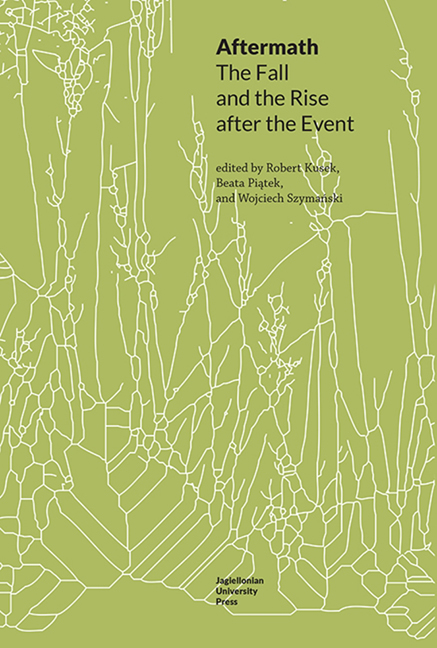The Post-Postmodern Afterlife of the American Novel: “Resurrecting” the Novel-as-Archive in Anne Valente's Our Hearts Will Burn Us Down (2016) and Ed Park's Personal Days (2008)
Published online by Cambridge University Press: 06 November 2021
Summary
Introduction: The (New) “Death of the Novel” and Post-Postmodernism
If one is to believe the narrative framed by titles such as Birkerts's The Gutenberg Elegies: The Fate of Reading in an Electronic Age (1994), the (U.S.) print-novel has been dead for over two decades now. Attesting to what they perceive as the dramatic waning of its aesthetic, cultural, and political influence today, a growing number of contemporary novelists as well as literary critics have been postulating the supposed death of the novel at least since the 1990s. The more recent articles and interviews by novelist and critic Will Self are apt cases in point: opining that “the novel is absolutely doomed to become a marginal cultural form” (Clark 2018), Self (2014) dramatically claims that “The Novel is Dead (This Time It's for Real).”
Yet, despite the apparent sense of urgency in such announcements of the novel's demise, these claims are not at all unprecedented, as they have been resurfacing in criticism and academia throughout the 20th century (Fitzpatrick 2006: 15–16; Boxall and Cheyette 2016: 1–3). Also, contemporary proclamations of the novel's diminishment appear even less new when it comes to their underlying arguments: not only do they regularly manifest the desire to conserve established positions of cultural status and privilege, but they also showcase the same set of ideas and claims that have been central to earlier assertions of the novel's waning prestige and influence (Boxall and Cheyette 2016: 1–3). First, contemporary novelists and critics reiterate the “familiar story of the morbidity and decline of printed books” in attributing the demise of the novel to media-related changes (Striphas 2009: 2; Fitzpatrick 2002: 519). As maintained by their argument, the recent rise of television and the Internet as new cultural mass media poses a fundamental threat to the printed codex in general, thereby relegating the print-novel to an, at best, marginal position in contemporary culture and society (Birkerts 1994: 3; Franzen 1996: 43, 51; Wallace 1993: 161– 163). Second, echoing earlier concerns voiced, for instance, in John Barth’s “The Literature of Exhaustion,” contemporary elegists of the novel ground their death notices on an assumed stylistic and cultural tiredness, which they often correlate with the aforementioned media changes.
- Type
- Chapter
- Information
- AftermathThe Fall and the Rise after the Event, pp. 305 - 318Publisher: Jagiellonian University PressPrint publication year: 2022



